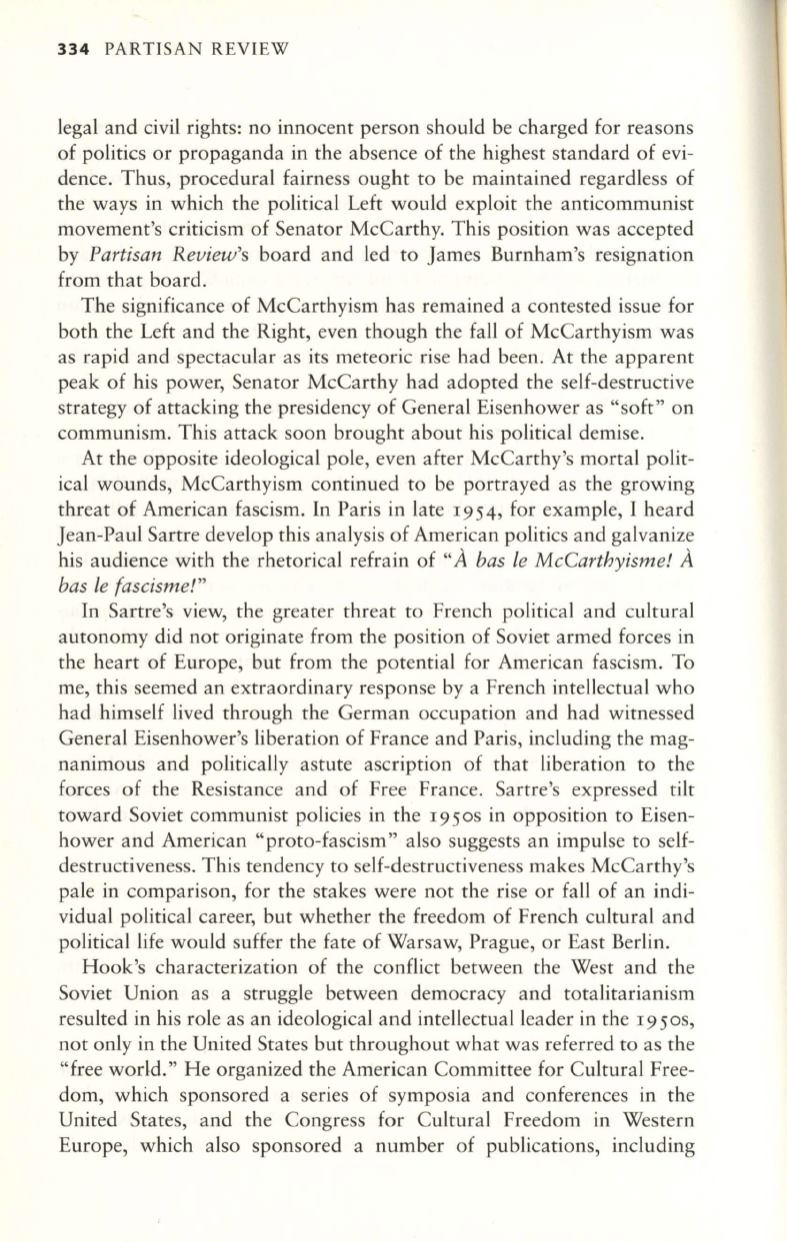
334
PARTISAN REVIEW
legal and civil rights: no innocent person should be charged for reasons
of politics or propaganda in the absence of the highest standard of evi–
dence. Thus, procedural fairness ought to be maintained regardless of
the ways in which the political Left would exploit the anticommunist
movement's criticism of Senator McCarthy. This position was accepted
by
Partisan Review's
board and led to James Burnham's resignation
from that board.
The significance of McCarthyism has remained a contested issue for
both the Left and the Right, even though the fall of McCarthyism was
as rapid and spectacular as its meteoric rise had been. At the apparent
peak of his power, Senator McCarthy had adopted the self-destructive
strategy of attacking the presidency of General Eisenhower as "soft" on
communism. This attack soon brought about his political demise.
At the opposite ideological pole, even after McCarthy'S mortal polit–
ical wounds, McCarthyism continued to be portrayed as the growing
threat of American fascism. In Paris in late I954, for example, I heard
Jean-Paul Sartre develop this analysis of American politics and galvanize
his audience with the rhetorical refrain of
"A
bas Ie McCarthyisme!
A
bas Ie fascisme!"
In Sartre's view, the greater threat to French political and cultural
autonomy did not originate from the position of Soviet armed forces in
the heart of Europe, but from the potential for American fascism. To
me, this seemed an extraordinary response by a French intellectual who
had himself lived through the German occupation and had witnessed
General Eisenhower's liberation of France and Paris, including the mag–
nanimous and politically astute ascription of that liberation to the
forces of the Resistance and of Free France. Sartre's expressed tilt
toward Soviet communist policies in the I950S in opposition to Eisen–
hower and American "proto-fascism" also suggests an impulse to self–
destructiveness. This tendency to self-destructiveness makes McCarthy'S
pale in comparison, for the stakes were not the rise or fall of an indi–
vidual political career, but whether the freedom of French cultural and
political life would suffer the fate of Warsaw, Prague, or East Berlin.
Hook's characterization of the conflict between the West and the
Soviet Union as a struggle between democracy and totalitarianism
resulted in his role as an ideological and intellectual leader in the I950S,
not only in the United States but throughout what was referred to as the
"free world." He organized the American Committee for Cultural Free–
dom, which sponsored a series of symposia and conferences in the
United States, and the Congress for Cultural Freedom in Western
Europe, which also sponsored a number of publications, including


